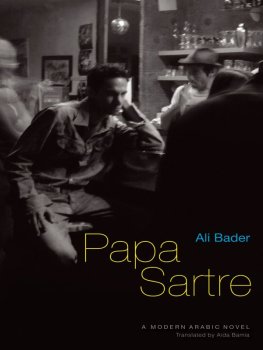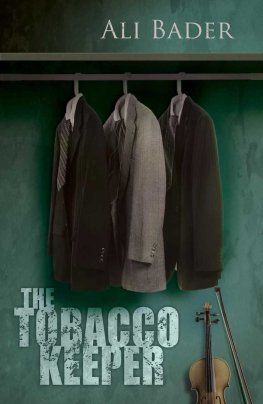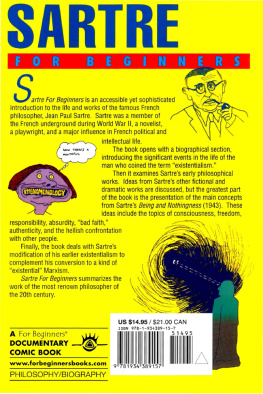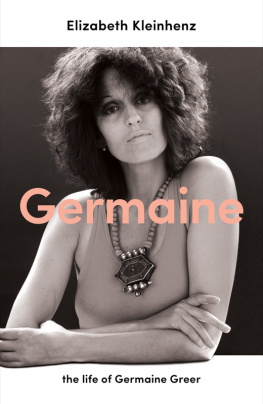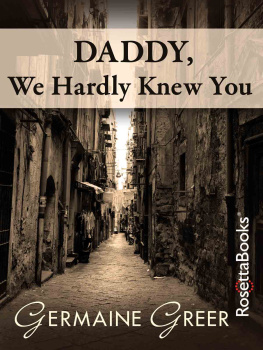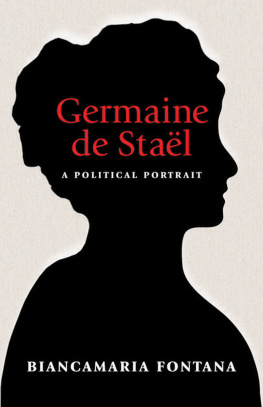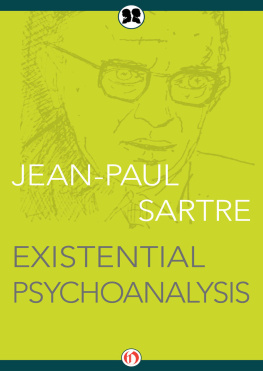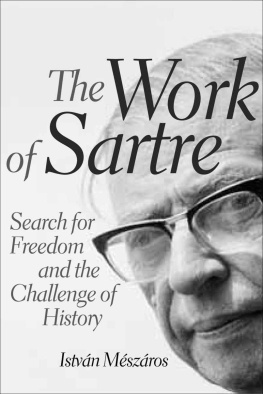That wicked devil Hanna Yusif, the macabre-looking gravedigger, and his depraved friend whom he refers to by the curious Biblical name of Nunu Behar were the ones who convinced me to write the biography of an Iraqi philosopher, who lived in al-Sadriya district in the sixties.
In truth, those two charlatans were not lacking a love of philosophy, nor were they without enthusiasm and genius. They were, however, truly short on honor and relied without exception on depravity.
I met them last winter. I visited them in a modest house overlooking the cemetery at the church of Umm al-Mauna behind al-Saadun Park. An Iraqi merchant who called himself Sadeq Zadeh half mad, wanton, and entirely dishonest had rented the room for them. I later learned he was the man financing the biography of the dead philosopher.
A friend working at the old manuscript library in Baghdad introduced me to them. I was mesmerized by Hannas broken voice, his high-pitched tone, and his gravediggers face. I met them on a cold, sunny December day. Hanna said to me with a certain visionary look while his hand rested on his girlfriends shoulder she never stopped chewing gumMy house is in al-Saadun Park, near the Assyrians grocery. Ill wait for you there on Sunday morning.
That Sunday I walked around the post office building, heading toward the Christian neighborhood that surrounds al-Saadun Park. Trees lined the street that ran between rows of one-story houses. I suddenly smelled the shiny rain-wet asphalt and spotted the Assyrians grocery at the end of the main street. It wasnt a large store but a narrow shop really, with two wooden doors. There were two metal-leaf panels at the center, and the front of the grocery was covered with white tiles. Inside there was a marble stand filled with copper utensils and baskets of washed fruit; there were also bottles of whiskey, local arrack, and first-rate wine, all lined up neatly in the glass showcase. A photograph of a stiff figure wearing an embroidered and medal-bedecked costume was hanging on the wall behind the Assyrian. I asked him about Father Hannas house. Who told you hes a father? he retorted, and burst out laughing. His white mustache stretched over his upper lip like milk, his blue eyes sank into their sockets, and his bony face seemed to mock me. It was his wife who replied, pointing a thin finger at a large green tree in the middle of the square, There it is. In the only memory I have of her she is wearing her braids curled on top her head like a halo, medical glasses, and a sad countenance reminiscent of Eves face after she was thrown out of Paradise. When I reached the cemetery fence, I saw a little house attached to a crumbling church. Water was running in a shallow creek along the fence, casting a silvery film in the air. I could hear the water flowing smoothly. I had to press up against the red brick wall to pass. The wall surrounded a rather large piece of land with a soft lawn and groups of roses that were planted without pattern; large trellises swayed under the impact of the birds jumping from corner to corner.
A man wearing drab trousers and a white scarf on his head, with a sharp knife in hand, was slaughtering a colorful rooster in the garden. He cut its throat and threw the creature onto the lawn, where it struggled in a pool of blood. I asked him if this was Hanna Yusifs house. He said yes. A drop of red blood on the lawn shone in the glare of the sun.
Our encounter was warm and friendly. Hanna smiled constantly, making his small mustache look like a trace of red wine. He led me to the living room. The curtains on the windows were embroidered with small pink flowers. I could hear the shower running and a cars tires squealing on the asphalt road.
I asked him if someone else was home, and he said, Nunu is in the shower. I asked him again about the philosopher and the books he had published during his lifetime. He shook his small red head with his shining blue eyes, No, none at all. This presumptuous fellow did not write a single book in his whole life.
Presumptuous? I said, surprised.
Every philosopher is presumptuous, said Nunu Behar as she walked past us, naked, coming out of the bathroom.
I dont understand, I said, staring at Nunu Behar, who was standing in front of a sofa covered with silk cushions. She buttoned her shirt and put on her pants without underwear. She left the top button unbuttoned and looked straight at me. I could see her ample breasts under the soft fabric of the shirt. She continued, Yes! Every philosopher is presumptuous, but there are those who write books and make their biographers job easy and others who dont write books and force us to pay someone to dig for information, lie, and make things up to make true philosophers out of them.
Her style of speech surprised me. She seemed to believe that writing a philosophers biography was an easy undertaking. She had sensed that I was apprehensive about writing this one, which would explain her indirectly trying to dissuade me from not doing so.
Her face was dripping with water and her jet-black hair shone under the light of the corner lamp. When she reached me she said, You know, a philosopher is a fabrication, it is true. . believe me, a fabrication. I could sense the heat of her skin under the open shirt that revealed her generous breasts. I asked her, Who creates this fabrication? The two scoundrels said in unison, We do. Then Hanna added, You will write this mans biography and well cover your expenses for collecting information and documents and then well pay you for writing. Nunu added, Today well give you some papers and some geographical pointers for you to get started with. But please, dont think that this is going to be a difficult project. His life was simple, extremely simple.
Do you think so? I said. She replied, I do.
I was truly happy with the promised sum of money, especially because I was totally penniless. Only my friend, the investigator in the manuscript library, knew how broke I was. But when those two scoundrels saw my joy at the prospect of a handsome sum of money and my willingness to undertake the project, they probably sensed my desperation. They immediately gathered the various papers, large folders, and documents that were scattered in their study. Hanna handled the red leather books roughly, pushing aside large glass inkwells on a desk with all sorts of colored pens, pins, and quills and a smaller inkwell with red ink. He explained, These are important documents that will acquaint you with the philosophers childhood, his school years, and the people who used to know him.
Hanna took a handkerchief from the pocket of his plaid trousers, with which he wiped off the desk, and sat on a rattan chair. He looked at me surreptitiously, handed me a thick striped file, and said, This is Nadia Khaddouris family file. They were partners with the Lawi family, the car dealers. He then took out another pile of square sheets and said, These are important papers. They concern Shaul.
Nunu Behar added, These documents and data arent really enough. Theyll only show you where to start and where to find more information and important papers. She was chewing gum while she spoke, and her eyes projected an exciting glitter of desire. I turned my gaze toward the papers in my hand and began to examine them. They werent documents in the real sense of the word but rather little snippets of information written in a vulgar and gushing style. Some were no more than encomiums written by those who had otherwise considered the philosopher stupid during his lifetime. Others, in a most sycophantic way, attested to his wisdom and genius. These papers wouldnt be a real source of information but could be important because they shed light on some of the preliminary problems related to the biography. Clearly, the real problem with these papers was that they consisted of piles of highly indigestible materials, written in a vulgar style, boringly flattering, and wholly lacking in impartiality. What I was looking for was a document that would contain objective information. At this point even a dull document would provide a great deal of help.

